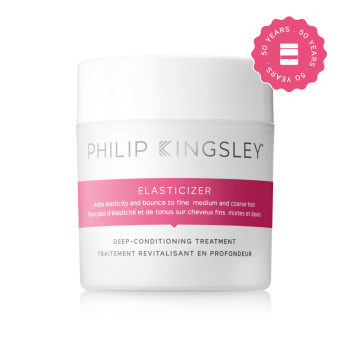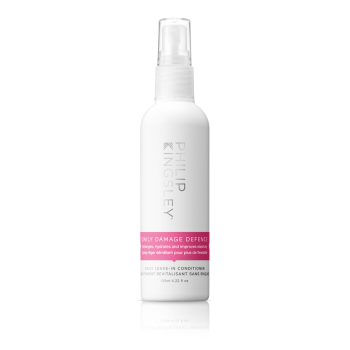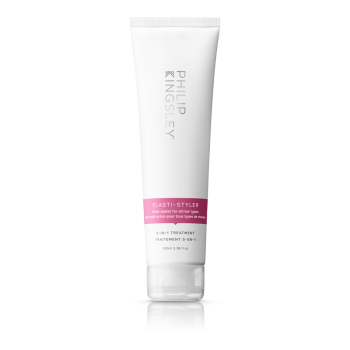The colder months can be a wonderful time for curling up inside with a book, taking brisk walks, or playing seasonal sports. Here are our top tips for keeping your hair in good condition when the sun hides away and the weather cools down.
Smooth and Seal Your Strands
Wintery winds can be harsh and unrelenting on your hair. They can raise and roughen your hair’s cuticles (protective outer layer), making your strands more vulnerable to breakage and split ends. A damaged cuticle also reduces shine, causes dryness, and makes your hair more likely to tangle.
To smooth your cuticles, gently comb through your conditioner with a wide-tooth comb after every shampoo, starting at your ends and gradually working up. Follow this by applying a protective de-tangling spray, such as our Daily Damage Defence, to your mid-lengths and ends. This will guard your hair throughout the day from further environmental damage.
Banish Split Ends
In the colder months, many people tend to grow their hair longer — and longer hair often means split ends. Unfortunately, once you have them, the only cure is to cut them off. Do so as soon as you notice them, or they are liable to continue splitting further up your hair shaft.
In the meantime, get that just-cut look (no salon trip needed) with our Bond Builder Split End Remedy. This hair hero helps to protect and strengthen existing bonds and repair broken ones, while instantly sealing split ends for stronger, visibly healthier hair. In Independent User Trials, 98.6% of split ends were sealed after just one application. With results lasting up to three washes, it forms a shield on the hair, helping to prevent future damage caused by UV, pollution and heated styling tools.
One of the worst causes of split ends is the hairbrush you use. Bristle brushes and brushes with metal prongs are particularly bad — they can tear away sections of the cuticle, snap your hair, and also scratch your scalp.
Choose a vented brush with rounded prongs and a cushioned base. This will help protect both your hair and scalp from daily styling damage.
Defend Against Dryness
Dry and brittle hair can be a particular problem in winter. Elements such as central heating, strong cold winds, and increased use of heated styling tools often deplete your hair’s moisture content, making it prone to snapping.
To restore strength and elasticity, apply a weekly pre-shampoo conditioner, such as our Elasticizer. If your hair is particularly damaged, use one twice weekly — and/or sleep with it in your hair.
When blow-drying, spray on a heat-protective conditioner, such as our Daily Damage Defence.
Double Down on Vitamin D
Sunny days can become few and far between in the colder months. This means that your Vitamin D levels can plummet. Vitamin D is essential to healthy hair growth, so invest in a supplement that will boost your intake, such as our Density Healthy Hair Complex. Eating Vitamin D-rich foods, such as salmon and mackerel, can also help.
Soothe Your Scalp
Flaky/itchy scalps become increasingly common in the colder months. This is due to a number of factors, like dietary changes, increased stress levels, and dry chilly winds.
How can you soothe your scalp and rid it of flakes? Use calming, anti-dandruff products, such as our best-selling Flaky/Itchy Scalp Shampoo and Flaky/Itchy Scalp Toner daily, until irritation clears.
As a preventative for dandruff, use a cleansing mask, like our Flaky/Itchy Scalp Mask, to stop a build-up of dead skin cells.
Lower Your Stress Levels
Stress levels can skyrocket in the winter — and this can lead to increased daily hair shedding, as well as a sweaty, oily scalp.
At Philip Kingsley, we take a holistic approach to hair care, and we consider stress management an important part of any hair care routine. Our experts often recommend the following techniques to help keep your mind — as well as your hair! — resilient and happy.
- Yoga
- Pilates
- Meditation
- Mindfulness (either taking classes or downloading an app)
- Cognitive Behavioural Therapy
- Exercise such as swimming and/or jogging
- Walking










